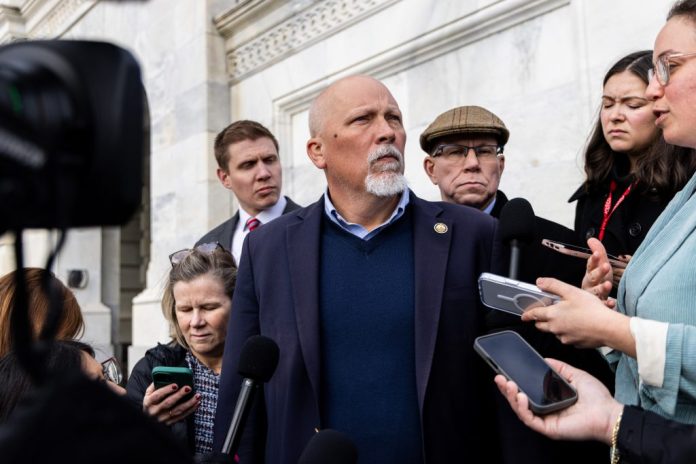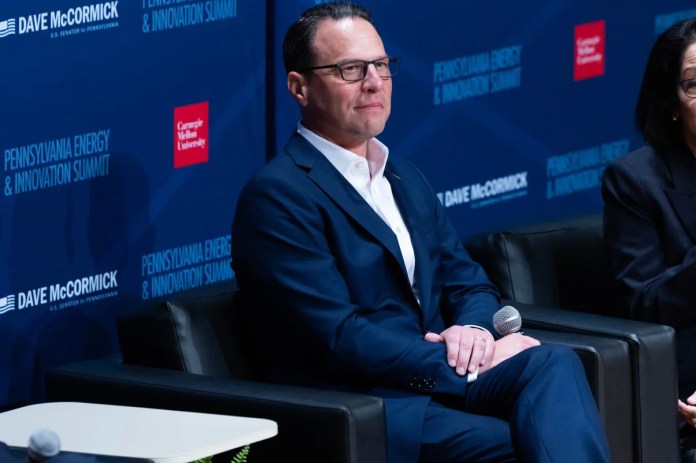Jerome Powell Reassures Lawmakers Federal Reserve Is Not a Climate Policymaker
Jerome Powell, Federal Reserve Chair and a member of Congress said that the U.S. central banks is not involved in climate policymaking.
One day after his appearance before the Senate Banking Committee, Powell presented the semi-annual Monetary Policy Report (House Financial Services Committee) on Tuesday.
The head of the central bank repeated the same expectations about monetary policy—interest rates will need to go higher than policymakers first thought—and noted that restoring price stability is paramount.
Many House Republicans took this chance to discuss the Fed’s possible role in climate policymaking.
Rep. Patrick McHenry, R-N.C. stated in his opening remarks how the Federal Reserve Board has established the basis for climate policy. “implemented through Fed regulation with an opening salvo of a ‘scenario analysis.'”
“Addressing an issue like climate change is important, but a policy should originate in Congress—not the central bank,” The Chair of the House Financial Services Committee stated.
“As you’ve said, the Fed needs to ‘stick to our knitting.’ There is concern from many that the Fed is picking up new needles and knitting partisan sweaters.”
Frank Lucas (Republican from Oklahoma), who is also Chair of House Science Committee, raised concerns that the Fed might be moving toward climate-related policy. He mentioned that the Fed was preparing climate-related stress test results, which could decrease capital availability for certain sectors of America’s economy.
“This would also wind up the Federal Reserve to political pressure and force the Fed, in fact, to make policy decisions related to climate change,” Lucas noted. “We’ve seen, for example, this administration turned to regulators to impose climate policy as an alternative to the legislative process.”
Powell insists that is not true.
“We are not looking to move into an area where we’re actually becoming a climate policymaker,” Powell spoke.
“I would completely agree with you that over time that border needs to be very carefully guarded.”
Slippery Slope
House GOP concerns that the Fed might make climate an incremental component of its policymaking instruments and aims.
Michael S. Barr (Fed Vice Chair for Supervision), revealed January details about a pilot program The law would require the six nation’s largest banks to report on the possible effects of climate change on their business operations. This review will show how the loan portfolios of financial institutions and their commercial real estate holdings could be affected, especially in the northeast by extreme weather conditions such as droughts, flooding, hurricanes, or other severe weather.
“The Fed has narrow, but important, responsibilities regarding climate-related financial risks—to ensure that banks understand and manage their material risks, including the financial risks from climate change,” Barr made the statement in a statement. “The exercise we are launching today will advance the ability of supervisors and banks to analyze and manage emerging climate-related financial risks.”
The central bank was first to consider this in 2005. This took about three years.pdfThe economic effects of climate change will be assessed in 2020.
Powell, however, has made it clear that, despite all the latest attempts, Powell will not allow climate policy to be dictated by the Fed. This would leave this issue up to Congress.
“I feel strongly that climate change is an important issue that needs to be addressed by elected people,” He added.
“We do have a narrow role, and that role will be around making sure that banks understand and can manage the risks that they’re running, and that’s going to be it.”
The Fed must do the same, as Powell stated earlier in this year, at a Stockholm summit. “stick to our statutory goals and authorities” “resist the temptation to broaden our scope to address other important social issues of the day.”
Democrats have been pushing the Fed in recent years to consider climate change risks when establishing its policymaking guidelines.
The Senate Democrats Special Committee on Climate Crisis will meet in August 2020 issued a report That the Fed should join the global Network for Greening the Financial System. The initiative includes some of the largest central banks in the world to help the financial sector mitigate climate change risk.
“Climate change remains the biggest threat on the horizon, and the current fragility of the financial system increases the likelihood that climate risks will spark a systemic crisis,” According to the report. “Managing climate risks is a natural extension of the Fed’s core responsibility to ensure a stable and efficient financial system.”
Sarah Bloom Raskin (ex-Deputy Secretary to the Treasury Department) was nominated by President Joe Biden as Vice Chair of banking supervision at The Fed Board of Governors. She supported (pdfClimate becoming an extension of the Fed’s regulatory authority “reimagining” Financial regulation can include the utilization of Fed stress tests, as well other regulatory powers that reshape financial systems and allocate capital to sustain investments.
Powell admitted that monetary policy and supervisory tools would help promote a greener economy or meet climate-related targets. “inappropriate.”
After Sen. Joe Manchin (D.W.Va.), confirmed that he would vote against Raskin’s nomination, Raskin withdrew his nomination.
Biden claimed that her adversaries fell for it. “baseless attacks from industry and conservative interest groups.”
“Unfortunately, Senate Republicans are more focused on amplifying these false claims and protecting special interests than taking important steps toward addressing inflation and lowering costs for the American people,” Biden stated in an interview that he was referring to a statement.
According to the San Francisco Fed Bank, climate change has an impact on its core functions: conducting monetary policies, supervising and regulating the banking system and maintaining a sound payment system.
“The Federal Reserve’s job is to promote a healthy, stable economy. This requires us to consider current and future risks—whether we have a direct influence on them or not. Climate change is one of those risks,” The regional central bank wrote.
Powell acknowledged during the recent hearing that some members’ fears about slippery slopes are acceptable. However, he promised Congress that the central banking would continue in its current course as long as he was Fed Chair.
…..
“Continue reading More from” Jerome Powell Reassures Lawmakers Federal Reserve Is Not a Climate Policymaker“
“The views and opinions expressed here are solely those of the author of the article and not necessarily shared or endorsed by Conservative News Daily”
" Conservative News Daily does not always share or support the views and opinions expressed here; they are just those of the writer."




